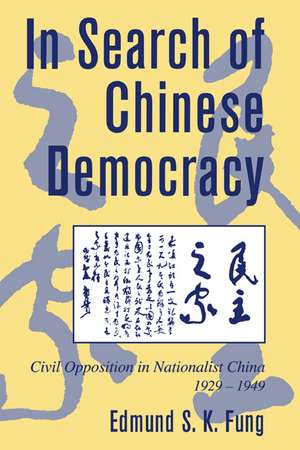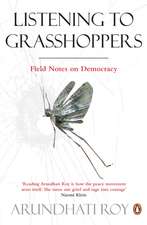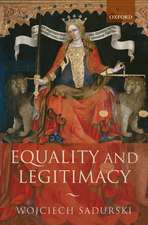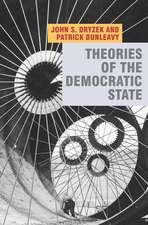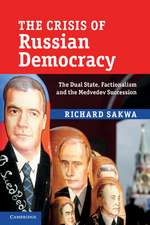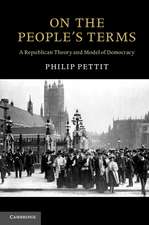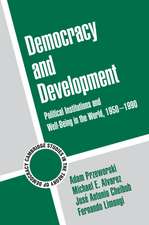In Search of Chinese Democracy: Civil Opposition in Nationalist China, 1929–1949: Cambridge Modern China Series
Autor Edmund S. K. Fungen Limba Engleză Paperback – 19 apr 2006
| Toate formatele și edițiile | Preț | Express |
|---|---|---|
| Paperback (1) | 326.53 lei 6-8 săpt. | |
| Cambridge University Press – 19 apr 2006 | 326.53 lei 6-8 săpt. | |
| Hardback (1) | 584.13 lei 6-8 săpt. | |
| Cambridge University Press – 3 sep 2000 | 584.13 lei 6-8 săpt. |
Din seria Cambridge Modern China Series
-
 Preț: 286.89 lei
Preț: 286.89 lei -
 Preț: 281.59 lei
Preț: 281.59 lei -
 Preț: 286.89 lei
Preț: 286.89 lei -
 Preț: 286.69 lei
Preț: 286.69 lei -
 Preț: 323.05 lei
Preț: 323.05 lei -
 Preț: 280.91 lei
Preț: 280.91 lei -
 Preț: 287.87 lei
Preț: 287.87 lei - 11%
 Preț: 695.59 lei
Preț: 695.59 lei -
 Preț: 288.62 lei
Preț: 288.62 lei -
 Preț: 327.79 lei
Preț: 327.79 lei -
 Preț: 321.14 lei
Preț: 321.14 lei -
 Preț: 338.22 lei
Preț: 338.22 lei -
 Preț: 394.29 lei
Preț: 394.29 lei -
 Preț: 361.00 lei
Preț: 361.00 lei -
 Preț: 425.05 lei
Preț: 425.05 lei -
 Preț: 255.85 lei
Preț: 255.85 lei -
 Preț: 252.88 lei
Preț: 252.88 lei -
 Preț: 321.31 lei
Preț: 321.31 lei -
 Preț: 284.98 lei
Preț: 284.98 lei -
 Preț: 331.82 lei
Preț: 331.82 lei -
 Preț: 287.28 lei
Preț: 287.28 lei -
 Preț: 287.87 lei
Preț: 287.87 lei -
 Preț: 356.53 lei
Preț: 356.53 lei -
 Preț: 243.53 lei
Preț: 243.53 lei
Preț: 326.53 lei
Nou
Puncte Express: 490
Preț estimativ în valută:
62.49€ • 67.85$ • 52.49£
62.49€ • 67.85$ • 52.49£
Carte tipărită la comandă
Livrare economică 22 aprilie-06 mai
Preluare comenzi: 021 569.72.76
Specificații
ISBN-13: 9780521025812
ISBN-10: 0521025818
Pagini: 428
Dimensiuni: 156 x 228 x 24 mm
Greutate: 0.63 kg
Editura: Cambridge University Press
Colecția Cambridge University Press
Seria Cambridge Modern China Series
Locul publicării:New York, United States
ISBN-10: 0521025818
Pagini: 428
Dimensiuni: 156 x 228 x 24 mm
Greutate: 0.63 kg
Editura: Cambridge University Press
Colecția Cambridge University Press
Seria Cambridge Modern China Series
Locul publicării:New York, United States
Cuprins
Acknowledgments; Introduction; 1. The dictatorial regime; 2. Setting the opposition agenda: the issue of human rights, 1929–31; 3. The National Emergency 1932–6: political and intellectual responses; 4. In defense of democracy 1933–6; 5. An abortive democratic experiment: the people's political council, 1939–45; 6. Wartime democratic thought; 7. The third force movement: the Chinese democratic league, 1941–5; 8. 'Peace, democracy, unification, and reconstruction' 1946; 9. The last stand of Chinese liberalism; Conclusion; Selected bibliography; Glossary; Index.
Recenzii
"This book by Edmund S. K. Fung builds on Andrew J. Nathan's Chinese Democracy (1986) with a fascinating history of liberal and democratic thought in the 1930s and 1940s, combined with a detailed study of the various democratic parties and institutions of the period...The book begins with an excellent introduction to the period...This book is at its best as a work of intellectual history...As a major contribution to our understanding of democracy in twentieth century China, it should be of interest to political scientists as much as to historians." American Historical Review
"The book, on the whole, is well written and clear...In sum, this is an extremely interesting study of the 'hitherto little-known story'....It is a tour de force, a truly impressive piece of scholarship." The China Journal
"The book, on the whole, is well written and clear...In sum, this is an extremely interesting study of the 'hitherto little-known story'....It is a tour de force, a truly impressive piece of scholarship." The China Journal
Descriere
Fung argues that the reasons democracy did not take root in China were more political than cultural.
